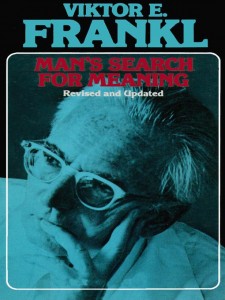Beer Goggles or “Attentional Myopia”
From PsyBlog, What Alcohol Does to Your Mind: Attentional Myopia takes a look at the narrowing effect drinking has on thinking:
According to a growing body of evidence collected over the last three or more decades, people’s Jekyll and Hyde behaviour while drinking can be understood by a simple idea which has some intriguing ramifications.
The alcohol myopia model says that drink makes our attentional system short-sighted and the more we drink, the more short-sighted it becomes. With more alcohol our brains become less and less able to process peripheral cues and more focused on what is right in front of us…
More here.
Behavioral Optometry vs. ADHD
Another massive mental-health related piece in the New York Times magazine–Concocting a Cure for Kids with Issues.
[Some] parents often don’t trust the mental-health professionals who usually treat children with “issues,” as we euphemistically tend to refer to problems like learning disabilities, attention-deficit hyperactivity disorder, autism or other developmental difficulties. […] That’s why some of these parents end up seeking the services of people like Stanley A. Appelbaum. Appelbaum is a behavioral optometrist…
Therapy Books
A reader poll at Where the Client Is came up with the “best-ever therapy books” for therapists and for everyone. Both list-toppers, I think, make good “everybody” titles. They are:
Man’s Search for Meaning, by Victor Frankl
The Gift of Therapy, by Irvin Yalom
Both worth the time.
Insomnia Battled
“All Nighters” is a New York Times blog series about insomnia–how it’s lived, what to do about it. Cartoonist Roz Chast recommends playing some individual Scattegories, “The A to Z Cure“:
One thing I do when I can’t sleep is play alphabet games. I try to list various things from A to Z: countries, rock groups, prescription drugs, movies, books, celebrities whose first and last names begin with the same letter… you get the idea. I don’t mind repeating categories from one night to another. Diseases might seem to be an unlikely insomnia game category, but for some reason, it’s one of my favorites. I like to combine ailments that terrified me in childhood (lockjaw) with ones that I didn’t know about until I was an adult (Ebola). And there are certain ailments that are never, ever on the list. Ever.
Illustrated on the site.
Too Tired for Sex
A study relayed by the New York Times:
About one in every four Americans married or living with someone say they are so sleep-deprived that they are often too tired to have sex, according to a new study by the National Sleep Foundation. Lack of sleep also keeps many people from work and family functions, the report said…
Playing Hard-to-Get: The Study
PsyBlog digs into psych study history and answers the question, Does Playing Hard To Get Work?:
[E]very time psychologists used an experiment to test the idea that playing hard to get is a good dating strategy, their results didn’t make any sense. At least not until 1973 when Elaine Walster and colleagues at the University of Wisconsin finally hit upon a method that teased out the subtleties (Walster et al., 1973).
Manufacturing Depression
A long review/think piece in the New Yorker about therapy and psychiatry, including the view from Gary Greenberg’s book, Manufacturing Depression: The Secret History of a Modern Disease:
Greenberg basically regards the pathologizing of melancholy and despair, and the invention of pills designed to relieve people of those feelings, as a vast capitalist conspiracy to paste a big smiley face over a world that we have good reason to feel sick about. The aim of the conspiracy is to convince us that it’s all in our heads, or, specifically, in our brains—that our unhappiness is a chemical problem, not an existential one…
More here.
Adventure Therapy
Skiing, pizza, and group–program for teens profiled in the Calgary Herald:
There’s no texting on skis. No distractions. Just fresh air and the challenge of learning a new sport. So-called “bad kids” can leave their reputation behind at school and forge a better one in the outdoors.
That’s the theory behind the Adventure Therapy program, which an Airdrie high school counsellor has developed to help small groups of students with behaviour problems become more confident and socially adapted…
The Sex Addiction Divide
The L.A. Times joins the Tiger Woods-triggered sex addiction journalism spree:
Unlike compulsive gambling, which also is proposed for addition to the new DSM (to be called DSM-5), the proposed diagnosis — hypersexual disorder — stops short of categorizing the problem as an addiction, and for a reason.
“If we are looking at a disorder, it’s not clear what that disorder is,” said Michael Miner, a professor of family medicine and community health at the University of Minnesota who advised the DSM-5 committee on sexual disorders. “There is not an agreed-upon name. The research is in its infancy.”
Top Ten Online Psychology Experiments
From PsychCentral, a list of Top Ten Online Psychology Experiments. Click around, help science, maybe have fun.
At any given time, hundreds of online psychology experiments are going on. They are a great, cost-efficient method to gather experimental data from the multitudes of people online. These experiments can be fun to try, but also provide researchers with valuable data that future research may be based upon. Here are all-new experiments as well as a couple of classics.
10. Sexual Infidelity. Can you guess who cheats, from listening to their voices? New research, with voices speaking vowels, and some facial images too. Unfortunately, no results shared…
The rest of the list is here.
